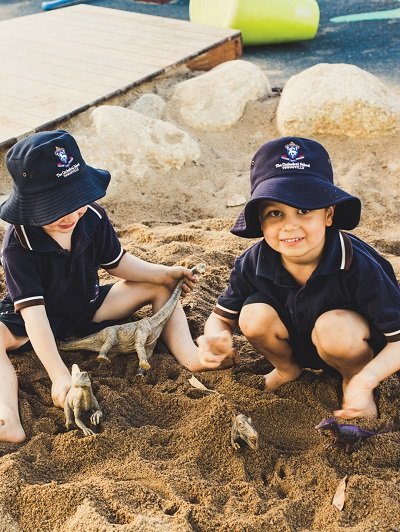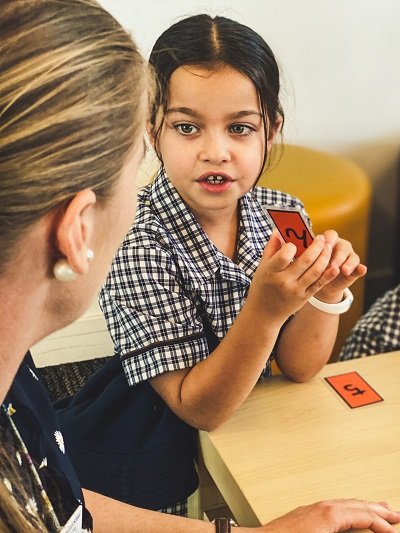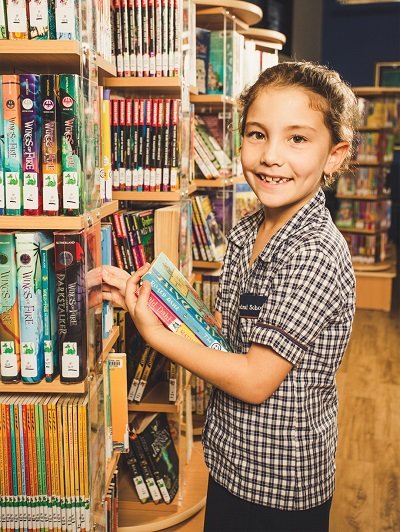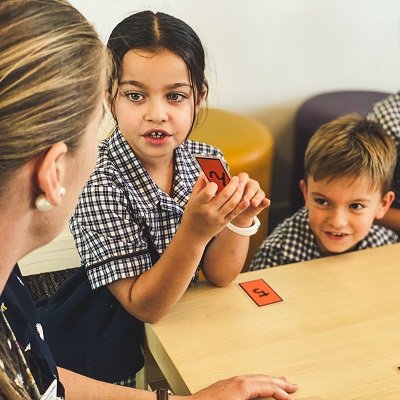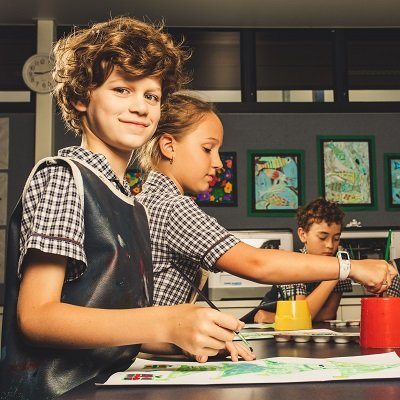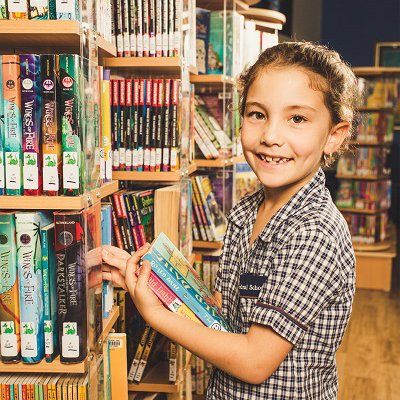At The Cathedral School, our vision is simple: we are “one school, one community with one vision”—Educating for life-long success. We are dedicated to helping each student reach their full potential in every aspect of life—academically, physically, culturally, and socially. Our professional learning community consists of exceptional educators and curriculum innovators who ensure that every student acquires the skills and knowledge needed to succeed in a global society.
We offer a broad range of subjects and pathways tailored to both academic and vocational goals. Our innovative learning environments, modern methods, and advanced technologies enrich the educational experience, while our diverse extracurricular opportunities allow students to explore and grow beyond the classroom.
We aim to create a caring and inspiring community where students are challenged to learn and grow. Our goal is to foster academic excellence and to develop students’ ability to make wise decisions as responsible members of society. We value diversity, inclusion, and the unique worth of every individual, working together as one community to achieve our shared vision.
At Cathedral, we respect our history and traditions while actively engaging with both our local and global communities, ensuring that every student is prepared for the challenges and opportunities of the future.
Our Schools
At Cathedral, we offer a seamless educational journey from Pre-Kindergarten to Year 12, all on one campus. Our goal is to provide every student with a strong foundation for lifelong learning and success.
Early Learning
Junior School
Middle School
Senior School
Vocational Education
Tutoring
Education at Cathedral: An overview
Early childhood education such as kindergarten/preparatory is intended to provide care and supervision of children, to prepare children for school, and to ensure that children are able to effectively participate in subsequent learning opportunities. Early childhood education is usually conducted in association with community programs, pre-schools and other child-care settings.
In Australia, it is compulsory for children to attend primary and secondary school education between the ages of 6 and 16 (Year 1 to Year 9 or 10). Primary and secondary education focus on developing essential literacy, numeracy, and social skills, and provide foundational knowledge to children about the world around them.
Students who complete their senior secondary school program at Year 12 or equivalent are awarded a Senior Secondary Certificate of Education. They then leave school to undertake vocational or higher education courses and/or start work.
-Source: TimeStudy
Learning Standards and Frameworks
Excellence in Education
Australia is globally recognised for its outstanding education system, ranking among the top ten countries in the world. Here’s what makes Australian education highly valuable:
- Personalised Learning Environments: Small class sizes, capped at 30 students, ensure personalized attention and a supportive learning atmosphere.
- Expert Educators: All teachers are university-trained, with specialists in various subject areas to provide targeted and expert instruction.
- State-of-the-Art Facilities: Schools are equipped with high-quality technology, including widespread access to computers and the internet, creating a modern and connected learning environment.
- Programs for the Gifted: ‘Gifted and Talented’ initiatives cater to high achievers, allowing them to excel and reach their full potential.
- Advanced Learning Opportunities: ‘High Achievement’ programs enable top students to study university-level subjects, earning advanced credit and preparing them for future academic success.
- Rigorous Standards: Australian schools operate under strict quality assurance frameworks, ensuring they consistently meet and exceed required educational standards.
Our Guiding Frameworks at The Cathedral School: Our vision, philosophy, principles, and practices are identifiable in the Junior School’s explicit Instruction and Walker Learning Approach and the Middle and Senior School’s New Art and Science of Teaching, support the use of the Teaching and Learning Framework, and are reflected in the Australian Professional Standards for Teachers.
Early Learning: The Early Learning Centre incorporating Kindergarten is an integral part of The Cathedral School’s commitment to providing children with the best possible environment in which to explore, learn and grow. Children from 6 weeks to Kindergarten are able to participate in age-appropriate programs under the watchful eye of professional and caring staff. With an emphasis on learning through play and positive social interactions with peers, children begin developing the framework for a life-long educational journey. The Early Learning Centre incorporating Kindergarten operates an approved service under the Education and Care Services National Law Act 2011. The Centre is meeting the national quality standard regarding activities, programming, staff qualifications and child-staff ratios according to the current legislation.
Junior School: The Prep program is focused on the child, encouraging social, emotional, cognitive, creative, and physical development. Both indoor and outdoor learning spaces offer a stimulating environment for well-rounded growth. Teachers work closely with children, encouraging them to express ideas, test theories, and reflect on their learning. Activities are varied, including individual, group, and hands-on experiences. The program includes physical education, music, and library sessions with specialist teachers. Children also enjoy a weekly chapel service. Prep runs five days a week, from 8:35 am to 3:00 pm, with extended care available through our Outside School Hours Care program.
Year 1-6: Children are naturally curious and eager to learn, and our goal at Cathedral is to nurture that enthusiasm so they become confident, lifelong learners. We provide a varied and engaging curriculum with high academic standards, ensuring that students develop a love of learning. Our programs include classroom enrichment tailored to individual needs, learning support for students with special needs, and a strong music program with specialist teachers and instrumental lessons. In addition, we offer excellent physical and outdoor education programs, Japanese language instruction, and the integration of Information Communication Technology across subjects. Our user-friendly library supports student learning, and our caring environment is rooted in Christian values. Students enjoy air-conditioned classrooms, shaded outdoor areas, and access to Outside School Hours Care and Vacation programs.
Middle School: In Middle School, the curriculum and pastoral care models are designed to meet the needs of students as they journey through the transitional years of adolescence. Our objective is to provide a positive, safe yet disciplined environment for these students from Years 7 to 9 to be academically challenged and to provide each individual with the means and opportunities to grow emotionally, socially, and spiritually. This phase of learning is very much about developing increased independence as students transition out of the Junior School and begin to develop the skill sets they require to prepare them for the demands of Senior Secondary Schooling in Years 10, 11 and 12. There are 4 Middle School values that were identified by the first Middle School students in 2006. These values have become embedded and expected within the Middle School. The 4 Values are Respect, Responsibility, Endeavour, and Service. These values will set the foundation for students engaging and learning in the Middle School whilst also preparing them for the Senior School and beyond.
Senior School: Senior Schooling programs are developed to align with the many post-school pathways available in the 21st century.
Commencing in Year 10 is the first opportunity for a Certificate subject to be undertaken, as well the availability of TAFE subjects and/or the commencement of traineeships and work placements. Within the core offerings of Science and Humanities, you also have the opportunity to sample the individual subject offerings within these learning areas, coupled with mandatory study of Maths and English together with some elective choices from other learning areas. During Year 10, students undertake a three day career planning session, along with Natural Abilities testing. Towards the end of Year 10, the development of a pathway for each individual is fine tuned through the completion of a Student Education and Training Plan (SETP), managed by our Careers Advisor. Year 11 provides an extensive range of traditional academic subjects that will position students for an ATAR score and tertiary study after Year 12. Alternatively, students may choose from a range of applied and vocational subjects, often coupled with courses undertaken through external providers e.g. TAFE
Teaching Standards
Our highly accomplished teachers are university trained and actively engage in extensive professional development. Our teachers also provide exceptional pastoral care by establishing and maintaining a safe, connecting, caring, inclusive, nurturing, and Christian environment which fosters and supports the learning and personal development of each child. Teaching staff are required to be involved in the school’s Co-Curricular program under the Queensland Anglican Schools Enterprise Agreement.
Qualification Requirements (Minimum):
• Bachelor of Education (Early Childhood/Primary/Secondary) or a degree qualification supported by a post-graduate diploma or degree in teaching or education.
• Registration with the Queensland College of Teachers.
• Current First Aid and CPR certificates.
Key strategies for successful teaching of students include:
• Challenging students with high expectations and providing ongoing progress monitoring.
• Engaging students through curiosity, discovery, and passion for learning.
• Using evidence-based practices to set clear learning goals and support student progress.
• Encouraging innovation by exploring different problem-solving approaches and learning from others.
• Balancing academic goals with holistic development and personalised learning opportunities.
• Making learning relevant by considering students’ backgrounds, needs, and real-world applications.
• Knowing students well and creating safe, inclusive, and stimulating learning environments.
• Monitoring student progress using various assessments and providing feedback for improvement.
• Implementing classroom management strategies that combine preventative and responsive approaches.
• Developing positive relationships with students through effective communication and supportive interactions.
• Building positive relationships with students.
• Providing regular feedback on student progress.
• Encouraging student engagement and participation.
• Tailoring teaching methods to accommodate diverse learning styles.
• Setting clear expectations and goals for students.
• Creating a supportive and inclusive classroom environment.
• Collaborating with parents to support student learning and development.
NAPLAN
NAPLAN (National Assessment Program – Literacy and Numeracy) is an annual test for students in Years 3, 5, 7, and 9 across Australia. It measures students’ literacy and numeracy skills, providing valuable insights for parents, teachers, and schools. The results help track students’ progress over time and compare their performance with national standards.
NAPLAN is used to monitor and evaluate school performance in key areas and identify where improvements are needed. While NAPLAN is one tool among many for assessing student progress, it does not replace the regular assessments conducted by teachers, who have the best understanding of their students’ development. Parents can use NAPLAN results alongside other reports to discuss their child’s strengths and areas for improvement with teachers.
The tests, now held in March, cover four areas: reading, writing, language conventions (spelling, grammar, and punctuation), and numeracy. NAPLAN does not measure overall school quality.
Student to Staff Ratio
As an independent organisation, The Cathedral School maintains a higher staff-to-student ratio than the Queensland Government school requirements. The Cathedral School ensures class numbers are kept at or below the maximum recommended size limit, to ensure quality personalised education through direct class contact and engagement between teachers and students.
Junior School: 3 x Classes. Average of 23 students per class.
Middle School: 5 x Classes. Average of 24 students per class.
Senior School: Various

